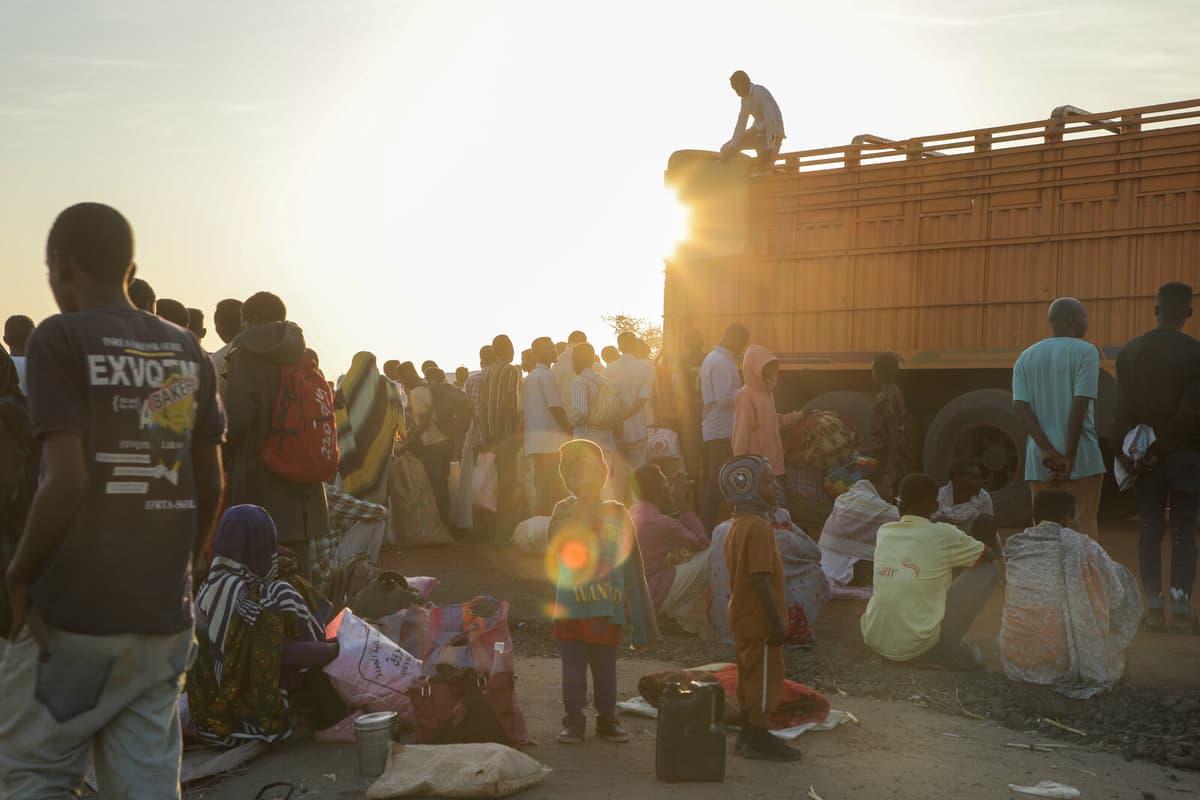Every day, a thousand people cross the border from Sudan to South Sudan, says Andersson, who is the deputy head of the UN agency UNHCR's work in South Sudan.
Those who come have experienced incredible things. Many come with only the clothes they are wearing. Many have walked for several days to reach the border, says the Swede to TT via a link from the capital Juba.
It's hunger. Some have their belongings stolen by bandits. Many come from places that have been bombed or where there is fighting.
Currently – with the US having withdrawn aid for humanitarian work worldwide – many of Sudan's war refugees are stuck in border areas. Temporary tent camps are growing explosively, according to Andersson. There are no longer any means to transport people further into the country.
Received a million
South Sudan is one of the poorest countries in the world. Together with Egypt and almost as poor Chad, it is the country that has received the most fleeing from Sudan – so far over a million people.
South Sudan is also war-torn. Among the fleeing are a large group of South Sudanese who fled the war there about ten years ago, or who were born in refugee camps in neighboring countries.
The humanitarian work already had small margins before the US decision. Now, the most basic things are being prioritized: shelter, water, sanitation, says Andersson. But it is far from enough. Cholera is spreading in the camps and emergency care is limited.
It's almost total collapse for the humanitarian situation, when such large resources are withdrawn in such a short time, says Joel Andersson.
It can basically collapse at any time, when we can't keep people alive, maintain stability in the camps or protect people at the border. The work is being done day by day now.
Some turn back
Aid organizations often wish for more support to be able to do more work, but this is something entirely different, emphasizes the UNHCR chief. He has previously worked in wars in Afghanistan, Yemen, and Syria.
We have never seen anything like this. And the war in Sudan continues, while it is unstable in South Sudan. It's almost a perfect storm, seeing how things can go very wrong very quickly.
When help is not enough, some desperate refugees have finally turned back, he continues:
And it can illustrate how bad the situation is, when you choose to return to Sudan and war.
The war in Sudan broke out in April 2023 when a split occurred within the country's ruling military junta. The military had seized power a couple of years earlier, after the long-time dictator Omar al-Bashir's fall.
On one side stands General Abd al-Fattah al-Burhan, who commands the regular army. On the other side stands his former deputy Mohamed Hamdan Dagalo, also known as Hemedti, who leads the so-called RSF militia.
Tens of thousands of people have been killed in the war. More than 14 million people have been driven into flight. The country has in practice been divided: the army controls areas in the north and east, and the RSF with coordinated groups controls areas in the west and south. The capital Khartum has also been divided and heavily contested.
Both parties have repeatedly been accused of war crimes.
The RSF has its origins in the notorious janjaweed militias, which under al-Bashir's rule were sent out to spread terror and crush the uprising in Darfur in western Sudan in the early 2000s.






